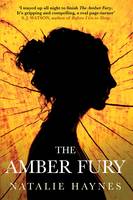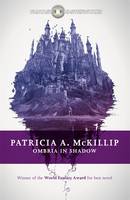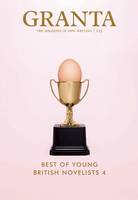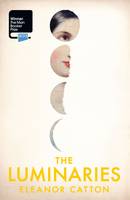Since I’m aiming this year to think more deeply about what I read and why, I wanted to begin this occasional series of posts on how things are working out and thoughts that come my way. It’s been a good start: I’ve read three books which are certainly going to stay with me – The Vegetarian, Manazuru, and The Wandering Pine. They inspired strong responses from me, and I can recall vividly what it was like. That, ultimately, is what I’m looking for.
But there was a time, towards the end of last month, when I felt the need to read something ‘lighter’. I wasn’t even sure what that was going to mean in my current reading context; I suppose it really meant a book which I could read once and wouldn’t mind if it didn’t stay with me. I tried a few books and found voices with the potential to entertain – voices telling of crime capers or small American towns under the burden of peril; or a quirky voice masking a darker experience of the world – but I put them aside. Some of those books would probably have done the job I wanted them to; the thing was that I felt I knew where their voices would take me, and it turned out I didn’t want that.
It’s one thing to abandon books that you’re not enjoying; I have no qualms about doing that. But putting aside books which might pass the time pleasantly enough – that’s new to me, and it is not easy. Yet I resolved to do it more this year, and it’s something I will have to do to get closer to the books that really count for me. It’s a risk with every book we don’t finish, and every book we never start, that we’ll miss something vital. But that’s the way it is, so I let my instinct prevail.
 The book I chose to read in the end was The Amber Fury by Natalie Haynes, which is a thriller about a woman who takes a job as a drama teacher in a pupil referral unit in Edinburgh; manages to get one of her classes interested in Greek tragedy; then finds that a tragedy has unfolded in front of her before she realised what was happening. I was immediately intrigued by the protagonist’s voice:
The book I chose to read in the end was The Amber Fury by Natalie Haynes, which is a thriller about a woman who takes a job as a drama teacher in a pupil referral unit in Edinburgh; manages to get one of her classes interested in Greek tragedy; then finds that a tragedy has unfolded in front of her before she realised what was happening. I was immediately intrigued by the protagonist’s voice:
The first thing they’ll ask me is how I met her. They already know how we met, of course. But that won’t be why they’re asking. It never is. (p. 5)
Naturally, this opening prompts plenty of questions in the reader’s mind. There were soon hints of tragedy in the narrator’s past, and of course an uncertain future. The Amber Fury held out the promise of leading somewhere perhaps largely familiar, but not entirely. It was enough for that moment. I carried on.
Did I get what I wanted from The Amber Fury? Yes and no. It might have helped if I knew more about Greek tragedy, because I suspect there were deeper parallels in Haynes’s novel that I missed. As it was, I had to rely mainly on the book’s qualities as a thriller, and… Well, all thrillers of course play a certain kind of game, and to read one is implicitly to accept that game. The Amber Fury’s game played out pleasantly enough; but, towards the end, I was getting impatient with it. I’d had enough ‘light reading’ and was ready for something else.
Don’t get me wrong: I wanted to be ready for something else, but I’d anticipated that being at the end of an enjoyable palate-cleanser; I hadn’t imagined that I would get fed up with the whole idea of palate-cleansing before it was finished. Of course, it could just have been the choice of book; but the experience has left me wondering: if this ‘light reading’ got me hankering after something else, was it really what I wanted in the first place at all? If it was, will the price of light reading always be that I end up falling out with it? Time will tell.





 To my mind, the best first step in approaching an unfamiliar genre is to choose something which belongs to the category of what you’d already read – but which can also be read as what you’re working towards. It’s then a question of viewing the book in that different light. For our hypothetical readers of mainstream literary fiction,
To my mind, the best first step in approaching an unfamiliar genre is to choose something which belongs to the category of what you’d already read – but which can also be read as what you’re working towards. It’s then a question of viewing the book in that different light. For our hypothetical readers of mainstream literary fiction, 
 From seeing similar qualities in different kinds of fiction, I think there’s one more stage, which involves recognising the value of different but equally worthwhile approaches. For our hypothetical readers, this might mean a book like Evolution by Stephen Baxter; this novel follows a single strand of DNA through evolutionary time, and hence transcends character, plot, and some other characteristics we might normally look for in fiction. But the episodic structure of the narrative could be said to mirror the process of evolution itself; so Baxter’s strategies work aesthetically for this particular book, even if they might not for many others.
From seeing similar qualities in different kinds of fiction, I think there’s one more stage, which involves recognising the value of different but equally worthwhile approaches. For our hypothetical readers, this might mean a book like Evolution by Stephen Baxter; this novel follows a single strand of DNA through evolutionary time, and hence transcends character, plot, and some other characteristics we might normally look for in fiction. But the episodic structure of the narrative could be said to mirror the process of evolution itself; so Baxter’s strategies work aesthetically for this particular book, even if they might not for many others.
Recent Comments